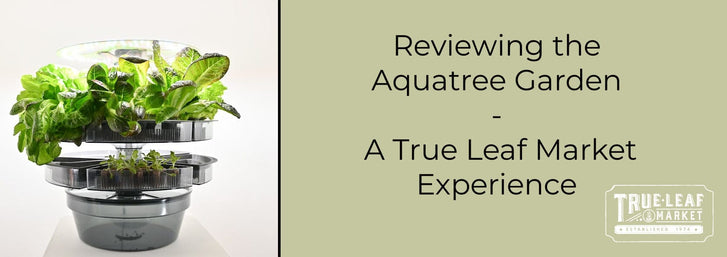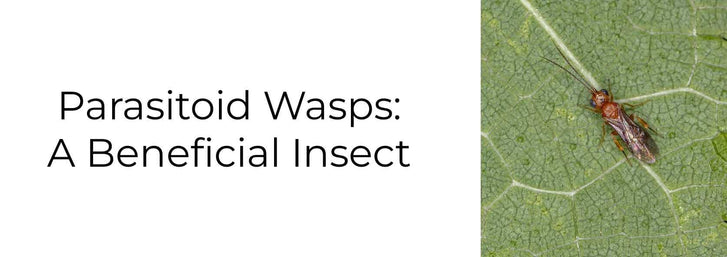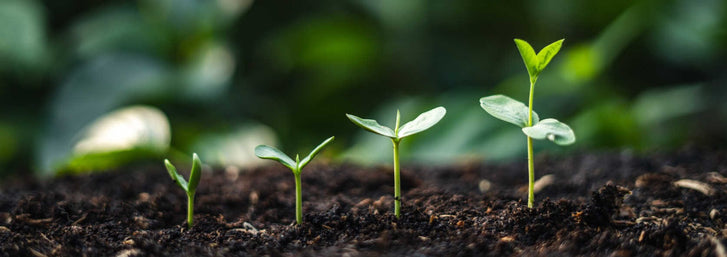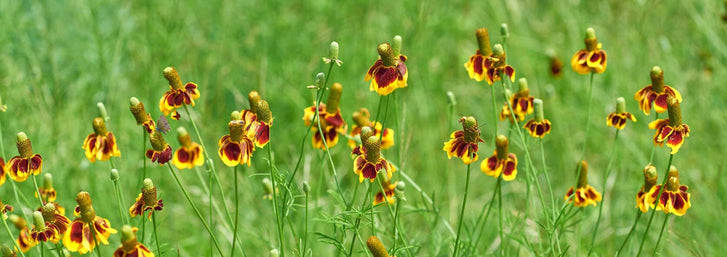
Ashleigh Smith

You've heard it time and time again, add compost to your garden for better soil. But what is it? And why should you be adding it to your garden?
Compost is a mixture of once living material that is decomposed by organisms like insects and microbes, enabling the nutrient compounds to be used by living plants. Increasing your organic matter has all sorts of benefits. It increases soil drainage and water capacity, reduces soil compaction, and provides an organic source of nutrients.
There is no man made material that can match the benefits of good organic matter. In areas of high agricultural production like the Pacific Northwest you will find high concentrations of naturally occurring organic matter. This is what causes the soil to appear so dark and “fluffy” in appearance compared to other areas.
The properties of reduced soil compaction and moisture retention create ideal growing conditions for healthy plants and crop production as root systems are able to have adequate room to expand and take up nutrients.
How to Compost?
- Buy or build a bin about 3ft x 3ft
- Add green organic materials like plants, fruit and vegetables and their peelings, and kitchen waste (excluding all meat products as they can lead to harmful pathogen populations in your compost).
- Layer the green organic materials with brown materials like newspaper, leaves, and wood chips/shreds/dust as available.
- Keep your compost pile moist and aerated by turning the pile every 2-4 weeks. During the winter months you will want to turn your pile less often as it will take longer for the center to build up heat.
- Depending on the size of your pile and the materials used the compost should be ready to use in a matter of a few weeks up to a year.
To start getting the benefits of compost today, try our Worm Castings. Worm castings are the byproduct of worms decomposing organic materials. The best part of using worm castings is that they are a clean, nearly odorless gardening manure compost that can be used in place of smellier, messier cow manures. It is also more convenient than keeping your own earthworms for gardens! Use worm castings for both indoor and outdoor plants.
About the Author

I'm Ashleigh Smith, a native to Northern Utah. I first gained a love of gardening with my grandmother as I helped her each summer. I decided to make a career of it and have recently graduated with a Bachelor's degree in Horticulture from Brigham Young University - Idaho. My studies have focused on plant production while I also have experience in Nursery & Garden Center Operations.
Become a True Leaf Market Brand Ambassador! You’ll enjoy awesome perks, free products and exclusive swag & offers! Help us create a gardening revolution and help others experience the joy of growing!
Leave a comment
Your email address will not be published. Required fields are marked *
1 comments
Rob Jarvis
Good Day, We live in Zimbabwe and during the past year we have been making compost largely out of lush green growing Tithonia plants. You pull them out of the ground with soil still attached to the root mass. Shake this soil off onto previously laid Tithonia and other green material plants. Every so often put a layer of manure or previously produced mature compost as an activator. When the compost heap is about 1 metre high, cover with a previously produced compost layer and let Nature take its course. Last summer these heaps were decomposing within a month to 6 weeks into beautiful, fresh smelling, usable compost. I was amazed. And of course in most areas Tithonia is an alien invasive plant so you are converting a problem into a garden nutrition solution.
Further Reading

Reviewing the Aquatree Garden: A True Leaf Market Experience
The AquaTree Garden is an innovative growing experience! This nifty appliance allows you to grow leafy greens, microgreens, herbs, large sprouts, and vegetable starts (like tomatoes) all at once! When it comes to indoor gardening, there is no question ...

Ashleigh Smith
2024-04-225 min read1
Parasitoid Wasps: A Beneficial Insect in the Garden
Written By Lara Wadsworth There are estimated to be around one million different species of parasitic wasps worldwide. In fact, most wasps are parasitic, which means they live on or in a host at the host's expense. For common garden pests like aphids, ...

Ashleigh Smith
2024-04-226 min read0
Succession Planting: The Key to a Continual Harvest
Do you find yourself harvesting large amounts of any given vegetable from your garden all at once? There is a solution! The practice of succession planting, or planting in segments over a period of time, allows you to harvest root vegetables, leafy gre...

Ashleigh Smith
2024-04-223 min read2
10 Natives of the Southwest USA for Pest Control
Written By Lara Wadsworth The Southwestern United States is a region incredibly unique to the rest of the country. The hot, dry weather can be challenging for plants and animals to thrive without additional help. That is why gardening with natives can ...

Ashleigh Smith
2024-04-157 min read0



